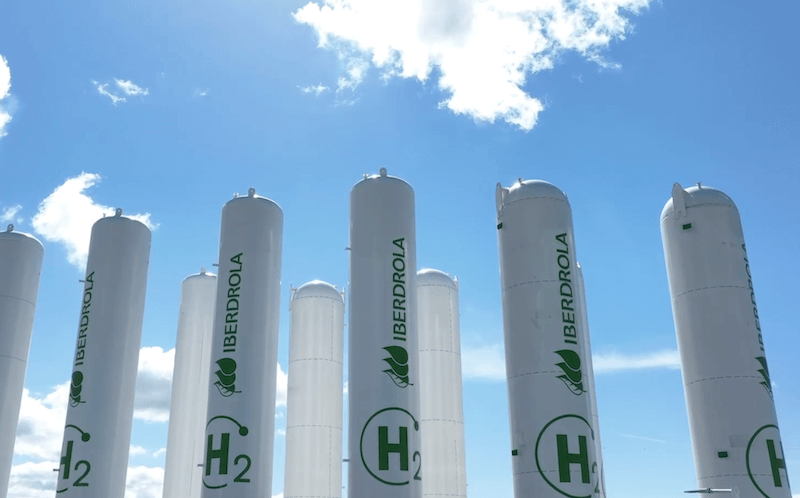.jpg)
UK construction industry woes delaying storage deployment
A number of EPC contractors in the UK have ceased trading in recent months, with the result that energy storage deployment forecasts have been revised down
- Storage EPC contractors struggling & construction sector insolvencies on the rise
- One storage EPC contractor cites unsympathetic & “short-sighted” clients as the problem
- EPC contractors’ plight has led to UK storage deployment forecasts being revised down
The UK construction industry is experiencing a torrid time at present and a slowdown in the deployment of energy storage projects is one of the side-effects. Data from the UK government’s Insolvency Service shows that 4,280 construction sector operators became insolvent in the 12 months to June 2023, a 16.5 per cent increase on the same period the previous year. Engineering, procurement and construction (EPC) contractors have not been immune to the economic turmoil facing the entire construction industry.

What is an EPC contractor?
An EPC contractor is a contractor that is party to an EPC contract, which sets out the terms and conditions for the design, engineering, materials and equipment procurement, and construction of a facility such as an energy storage system. An EPC contractor works under a single contract with a project owner, executing all project phases from start to finish. The EPC contractor is held accountable for capital project schedules, costs, and overall results, moving the risk from the project owner to the contractor.
However, with an EPC contractor assuming so much of the risk, if that contractor gets into financial trouble, entire projects can be placed in jeopardy. Unfortunately for the energy storage industry, the construction sector has always had one of the highest business failure rates. Statistics on US construction business failures – from the US Bureau of Labor Statistics – show that, of the 43,211 construction businesses that started in March 2011, only 37.6 per cent were still in operation 10 years later. Overextension – that is a construction company taking on a lot of work – is one of the primary reasons for business failures in the industry. Other reasons include low profit margins, slow collections, insufficient capital, onerous contracts, tight completion schedules, consequential damages, delay damages, high materials prices and a shortage of qualified and skilled workers.
High-profile EPC contractor liquidation
One of the most high-profile liquidations of a specialist energy storage EPC contractor occurred in July this year when news emerged about the winding up of Milton Keynes-based G2 Energy. More than 100 G2 Energy employees were made redundant. Prior to its liquidation, G2 energy had supported a wide range of engineering projects across the UK, including battery energy storage systems, renewable energy generation such as wind turbines and solar PV, and electric vehicle charging hubs. A total of 40 G2 Energy employees ended up joining facilities management and professional services company Mitie following the liquidation.
It is known that senior members of the G2 Energy management team were enraged by “unsympathetic clients/employers who used the contracts to drive G2 into this position rather than working with us – they were warned of our position but decided to just apply the contract conditions with very unreasonable payless notices, exacerbating the cashflow constraint that they caused.” There is a view that the fact clients took such an approach was short-sighted and self-defeating. One source close to G2 Energy said: “These clients now have their own problems with projects being delayed while they find alternative resources in a very constrained environment at a cost premium, rather than working with us during a very challenging trading period. The advice would be to ‘look after your contractors, before you lose them all’.”
A number of EPCs have ceased trading
While G2 Energy represents one of the more high-profile cases of an energy storage EPC contractor going out of business in recent months, it was not the only such company to find itself in financial trouble. As battery storage analysis platform provider Modo Energy highlighted last week, “in recent months, some EPCs have unfortunately ceased trading”. Modo Energy also stated that other EPCs had been forced to limit their services, due to difficult market conditions. “As a result, some battery owners have had to re-contract the completion of their projects,” Modo pointed out.
Struggling EPC contractors contributed to the slower than expected deployment of energy storage in the UK in Q3 2023. Modo Energy had predicted that 500MW of battery storage capacity would be built in Great Britain during Q3, but the actual buildout amounted to only 290MW, just over half of the expected total.

The general slowdown in recent buildout has prompted Modo Energy to revise its buildout projection curve down from 4GW by the end of 2023 to around 3.6GW, though it adds the caveat that if the current quarter mirrors the last, the figure will be lower.
.jpg)
